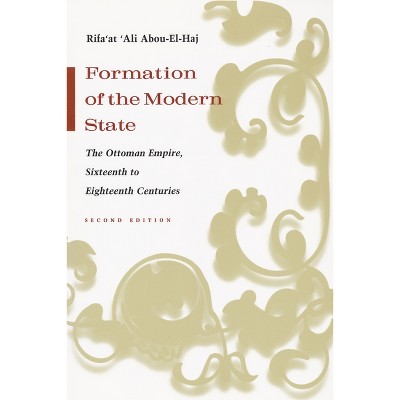Pragmatism in Islamic Law - (Middle East Studies Beyond Dominant Paradigms) by Ahmed Fekry Ibrahim (Paperback)

About this item
Highlights
- In Pragmatism in Islamic Law, Ibrahim presents a detailed history of Sunni legal pluralism and the ways in which it was employed to accommodate the changing needs of society.
- About the Author: Ahmed Fekry Ibrahim is assistant professor of Islamic law at McGill University.
- 392 Pages
- Religion + Beliefs, Islam
- Series Name: Middle East Studies Beyond Dominant Paradigms
Description
Book Synopsis
In Pragmatism in Islamic Law, Ibrahim presents a detailed history of Sunni legal pluralism and the ways in which it was employed to accommodate the changing needs of society. Since the formative period of Islamic law, jurists have debated whether it is acceptable for a law to be selected based on its utility, rather than weighing conflicting articulations of the law to determine the most likely expression of the divine will. Virtually unanimous opposition to the utilitarian approach, referred to as "pragmatic eclecticism," emerged among early Islamic jurists. However, due to a host of changing institutional and socioeconomic transformations, a trend toward the legitimization of pragmatic eclecticism arose in the thirteenth century. Subsequently, the Mamluk authorities institutionalized this pragmatism when Sultan Baybars appointed four chief judges representing the four Sunni schools in Cairo in 1265 CE. After a brief attempt to reverse Mamluk pluralism by imposing the Hanafi school in the sixteenth century, Egypt's new rulers, the Ottomans, embraced this pluralistic pragmatism. In examining over a thousand cases from three seventeenth- and eighteenthcentury Egyptian courts, Ibrahim traces the internal logic of pragmatic eclecticism
under the Ottomans. An array of archival sources documents the manner in which Egyptian society's subaltern classes navigated Sunni legal pluralism as a tool to avoid more austere legal doctrines. The ensuing portrait challenges the assumption made by many modern historians that the utilitarian approaches adopted by nineteenth- and twentieth-century Muslim reformers constituted a clear rupture with early Islamic legal history. In contrast, many of the legal strategies
exercised in Egypt's partial codification of family law in the twentieth century were rooted in premodern Islamic jurisprudence.
Review Quotes
A welcome contribution to the literature on Islamic law. An extensive and quality bibliography will point readers to further reading.-- "Middle East Librarians Association"
An important and rare achievement in Islamic legal historiography. Ibrahim successfully combines the study of legal practice through the lens of court records with an analysis of theoretical discourses in works on positive law and legal theory.-- "Ahmed El Shamsy, assistant professor of Islamic thought, University of Chicago"
Ibrahim's impressive and rich book is--and surely will remain in the foreseeable future--the most comprehensive study on tatabbu? al-kukhas, talfiq, and takhayyur, different manifestations of what Ibrahim calls 'pragmatic eclecticism, ' from the thirteenth century to the Arab spring.-- "Journal of the Ottoman and Turkish Studies Association"
One thing that makes Ibrahim's study so rich is that he can be read as using the fortunes of pragmatic eclecticism from the formative period of Islamic law through post-Morsi Egypt as a kind of organizing principle for a complete history of Islamic law.--Joseph E. Lowry "Journal of the Society for Contemporary Thought and the Islamicate World"
The author examines a vitally important, if little studied, development in Islamic jurisprudential theory and substantive law. . . . Ibrahim forces us to question some of the more popular academic conceptions about Islamic law in history and its evolution in modern centuries.--Reem Meshal, associate professor of Islamic studies, Louisiana State University "Reem Meshal, associate professor of Islamic studies, Louisiana State University"
About the Author
Ahmed Fekry Ibrahim is assistant professor of Islamic law at McGill University.




